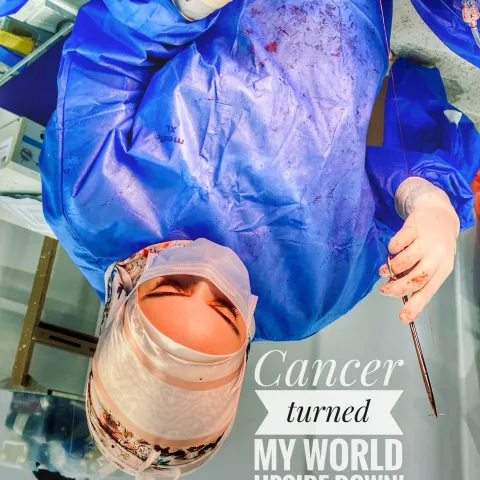
Yomna, Egypt

I am Yomna Sherif Omara, a general surgery specialist. My journey as a general surgeon began with an intentional avoidance of the oncology field. I was deeply aware of the cultural barriers in my country like many Arab countries that prevented women from seeking medical care to avoid consulting male physicians. While my colleagues and family including my father encouraged me to specialize in breast surgery to address this critical need, I initially resisted, fearing the emotional burden of treating cancer patients and the potential for professional frustration.
An opportunity for basic surgical training at Baheya Hospitals and Centers, an institution specializing mainly in breast cancer, presented itself. I viewed it as an enhancement to my surgical skills, not as a career path.
This training, however, proved to be a transformative experience turning my world UPSIDE DOWN. Surgery was always something I enjoyed, but working with cancer patients changed everything for me. Seeing their courage and how they faced their challenges made me feel a deeper sense of purpose. I subsequently chose to subspecialize in oncoplastic breast surgery, driven by a desire to assist women who faced cultural barriers.
My journey extended beyond the operating theatre. I joined Baheya’s medical awareness team, actively engaging in public education campaigns to emphasize the importance of self-examination, timely screening and early diagnosis. Moreover, being currently the Patient Navigation Program manager, with an amazing team from medical and non-medical personnel together with the psychological support team, we help guide patients through their treatment journey, overcoming barriers to care and fostering hope.
Baheya's patient-centered approach, emphasizing both medical excellence and comprehensive psychological support, has been a cornerstone of Baheya’s success since 2015. This multidisciplinary model, prioritizing the well-being of each patient, influenced my own approach to cancer care generally and breast cancer specifically.
The impact of these experiences has led me to believe that I can make a significant difference not only through surgical intervention but also by supporting patients emotionally and navigating them through the complexities of their care. My basic surgical training at Baheya 6 years ago, initially seen as a minor step that won't last, unexpectedly paved the way for a deeply rewarding career focused on breast cancer care from all aspects.
My perspective on cancer patients has shifted. I now understand that they must be at the heart of every decision we make. This is how we provide them with what they actually need not what we think is helpful. Every cancer patient that entered my clinic or was on my operating table has a different story. And their stories challenge us to constantly adapt and improve our methods, ensuring that our care truly reflects their individual needs and circumstances.
If cancer has turned a patient's world upside down, our approach to their care must likewise be.
